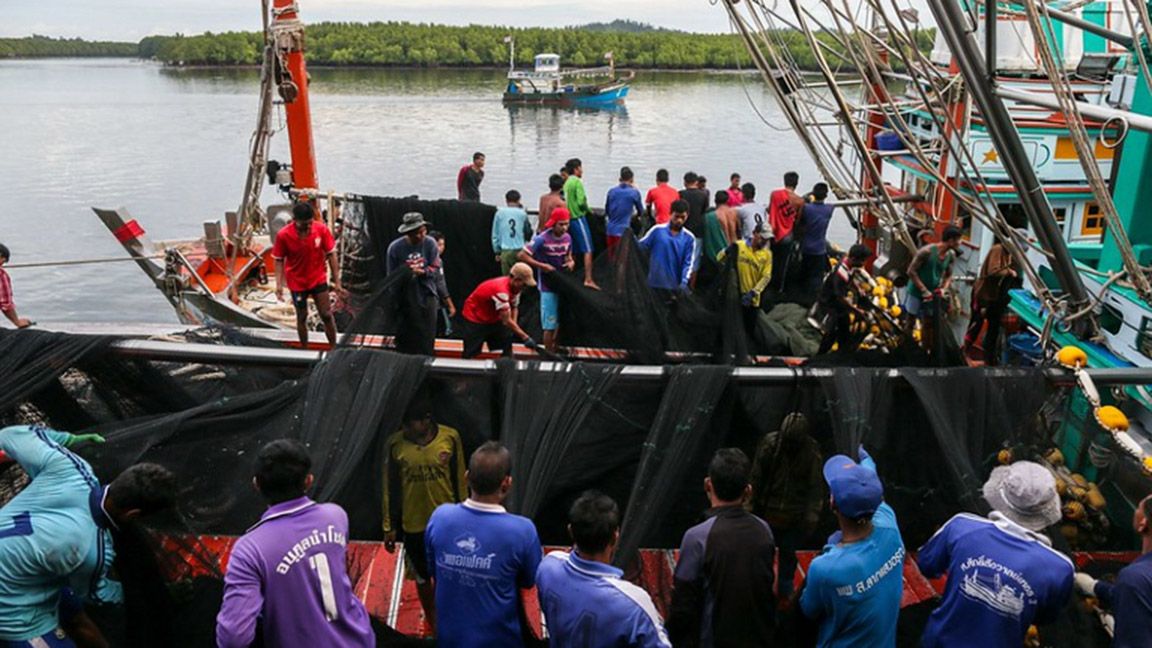The International Labor Organization noted a 9.1 percent decline in jobs in the commercial fisheries sector of the Philippines during COVID-19 with Thailand suffering the biggest jobs losses during the period and the Philippines was second to it.
A report of the International Labor Organization entitled “Rough Seas: The Impact of COVID 19 on fishing workers in Southeast Asia” showed that the Philippine commercial fishermen lost 9.1 percent jobs compared to the 1.112 million in the previous year.
Thailand took the top place, with the biggest percentage reduction in its fishing sector jobs, which dropped by 15.4 percent to 185,662 from 219,545.
Both countries also registered significant reduction in total hours worked. For the Philippines, it dropped by 17.54. percent, while for Thailand it was 23.11 percent.
The decline in the fishing sector in both countries happened while countries worldwide were implementing lockdowns to stop the spread of infection.
ILO noted that fishermen, who were fortunate enough to still have work at that time, were subject to “intensified precarity” onboard their fishing vessels.
The study pointed out that sea vessels often “lack personal protective equipment and limited access to medical care.”
Employers did not prioritize health
“Employers were found to have not prioritized health and safety protections for workers whereas alternative solutions of reducing crew sizes heightened overwork on vessels, making a dangerous situation worse,” ILO said in a statement.
ILO is now calling for increased transparency in corporate practices as well as better data collection for the fishing sector to address the said plight of fishermen in Southeast Asia.
It noted the “general dearth of reliable data” for the fishing sector in the said region makes it difficult for the concerned government to come out with better working conditions for fisherfolks.
“The Covid-19 pandemic hit the fishing and seafood processing industries in South-East Asia hard and migrant workers the hardest. Continued efforts to promote international labor standards and inclusive government policies are needed to address underlying protection gaps for workers,” ILO Assistant Director-General and Regional Director for Asia and the Pacific Chihoko Asada-Miyakawa said.
ASPAC is home to 29M fishers
The commercial fishing industry in Asia and the Pacific is home to 29 million fishers, equivalent of 83 per cent of all fishers’ workers worldwide. The COVID-19 pandemic has declined global fishing activities, leading to declines in employment and hours workers within the sector in the region.
To take stock of the effects of the crisis, the ILO Ship to Shore Rights Southeast Asia program and New Conversations Project at Cornell University School of Industrial and Labor Relations have jointly published a report ‘Rough Seas: The impact of COVID-19 on fishing workers in South-East Asia’. This virtual webinar will officially launch the report and present new analyses on the impacts of COVID-19 on workers, vessel owners, employers and economies.
The event brought together international organizations, key sector stakeholders and industry representatives share their specialized knowledge and discuss ways forward for a more resilient fishing and seafood processing sector.
The session aimed to raise awareness on the findings of the brief and open discussion with speakers from the sub-region on the effects of COVID-19 in their respective countries. A particular focus on ongoing challenges and ways forward for inclusive and sustainable recovery will allow the brief to be contextualized in a forward -looking manner.
Tags: #ILO, #commercialfisheriessector, #biggestjoblossesduringpandemic, #COVID-19
